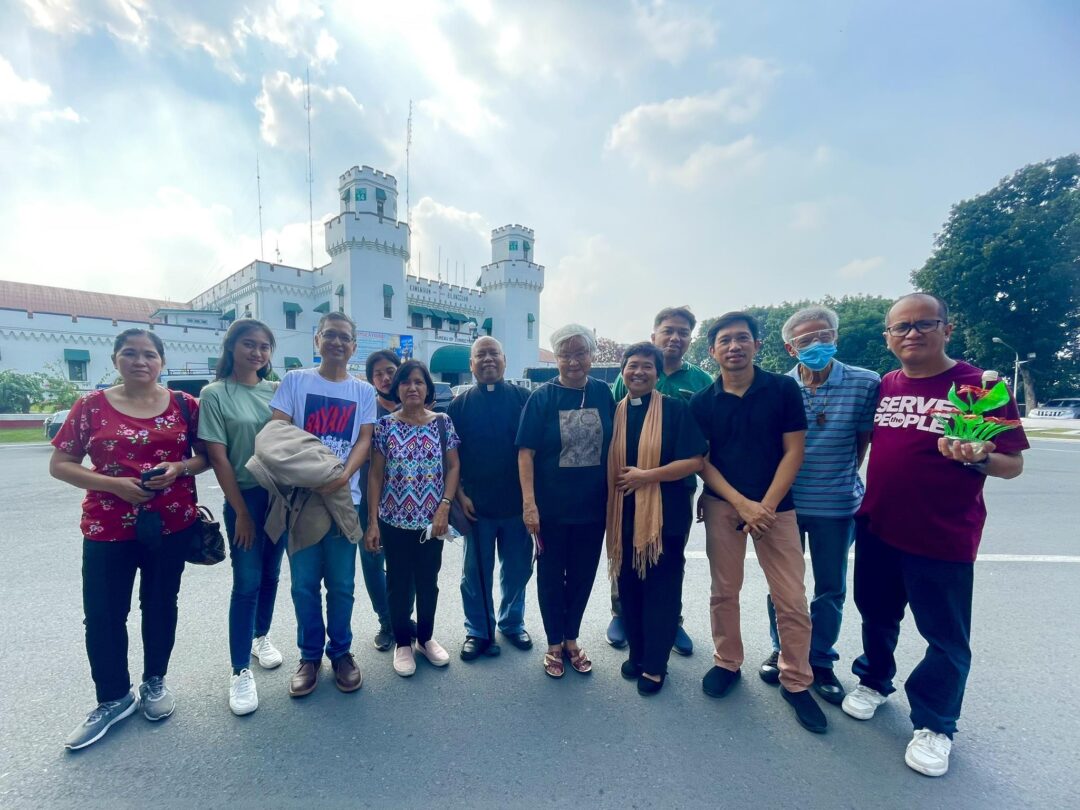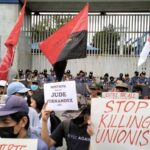No one enters and leaves a jail facility in the Philippines without being outraged by the conditions of inmates, the slow pace of the justice system, and the arrogant indifference of those who could do something to address these problems. It is a trip into the underbelly of the system that identifies itself as just and humane even if the appalling state of our prisons is self-evident. The indignation becomes more palpable once we read or hear the testimonies of political prisoners.
Incarcerated for practicing politics deemed subversive by those in power, the plight of political prisoners offers valuable insight into the dehumanizing aim of imprisonment. For those who uphold the unequal and unjust social order, their fascist instinct is to silence dissent, suppress independent thinking, and detain those who are building alternative power at the grassroots.
Thus, tyrants and their apologists celebrate the incarceration of activists, freethinkers, and members of the political opposition. Suddenly, these “rebellious” citizens cannot do more harm to the imperfect world of the ruling class. The threat is now confined within a tightly controlled space dominated by jail guards, CCTV cameras, and arbitrary prison rules.
But the oppressors are haunted by the impermanence of legal detention. Thus, they viciously conspire to exacerbate the suffering of the political prisoner until the unspoken torture becomes a daily routine. The seizing of the political moment is replaced by prison time, which moves to the opening and closing of jail doors, the changing curfews and rules dictated by the warden, the irregular visitation hours, and the glacial speed of the judicial process.
For state bureaucrats, they think that a strategic victory was achieved by herding political dissenters into a place where the nonstop prison struggle for survival is remotely connected to the rest of society.

The folly in this thinking is the arrogant assumption that the radical will of political prisoners can be dissipated by forcing them to narrow their focus on jail matters that seemingly never end. Indeed, time moves so slowly inside a prison, and the agonizing prison time takes away the prisoner’s most meaningful connection with the outside world. But for a political prisoner, prison time is part of the “long march” until victory is achieved. The flow of time is linked to the ebb and flow of the people’s resistance. Prison real-time’s harmful effect is countered by the political prisoner’s resolve to fight for freedom within and outside the walls of his or her incarceration.
Our history has provided ample lessons on how political prisoners can continue their advocacies despite their physical limitations and “distance” from the struggle. They found creative ways of enjoining the “outside” to support their battles “inside” the prison compound.
Given the constraints they face, political prisoners deserve our utmost respect for choosing defiance instead of compromise and collaboration with the class enemy. They provide a dignified example of how to live a life devoted to the cause of fighting with the oppressed. Their activism is demonized and criminalized by those who see no evil in the obscene hoarding of the nation’s wealth by the elite and the exploitation of the poor and powerless by those in power.
After years of isolation, they may not be known to a new batch and generation of activists and dreamers of a new world. Still, their names and the legacy of their political resistance are acknowledged and never forgotten. This makes solidarity an essential campaign as it makes the call for freedom more viable by preserving and enriching the ties with detained dissenters.
Solidarity smashes the dull regularity of prison time while negating the underhanded tactics of authorities. It reveals the failure of the repressive state to render political prisoners irrelevant. It is a lifeline that bridges the prison world and the bigger world of the unfree. In both spaces, the struggle for freedom and justice affirms our humanity.
*Mong Palatino is an activist and former legislator. He joined human rights advocates in visiting political prisoners detained at the National Bilibid Prison in Muntinlupa in January and at the Metro Manila District Jail in Bicutan in February. According to Karapatan, the Philippines has 795 political prisoners.



